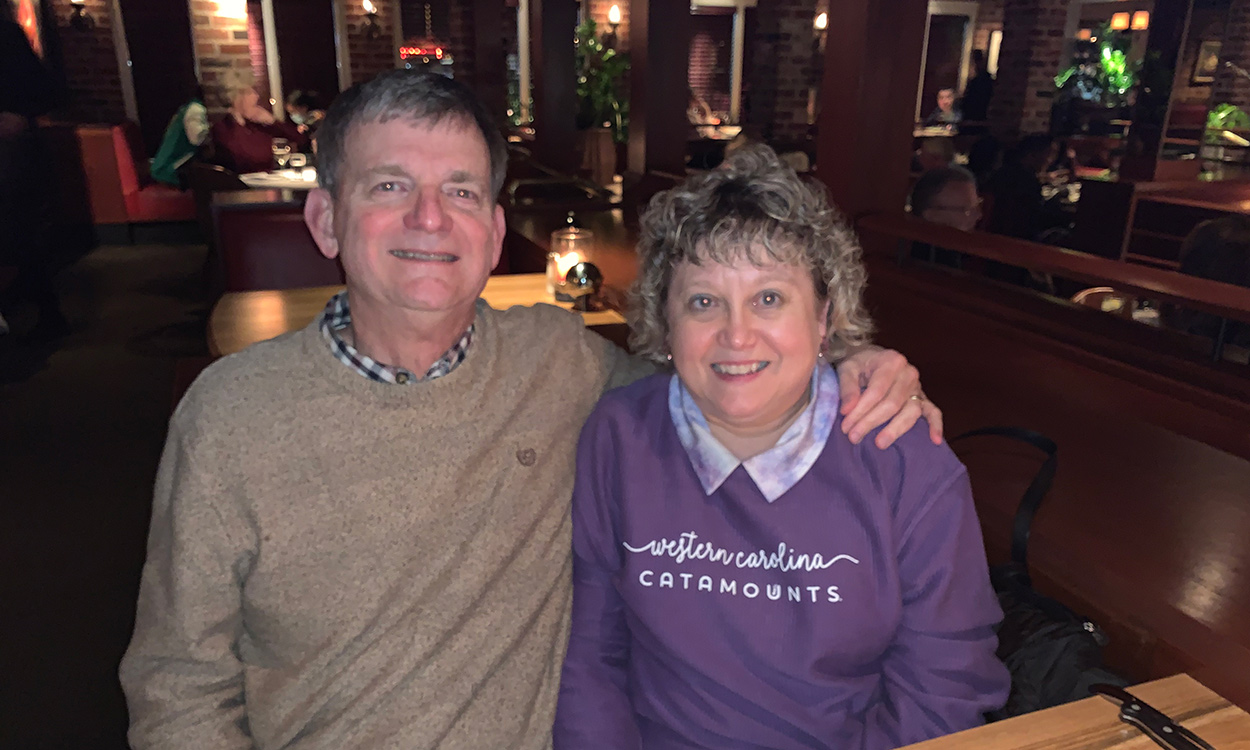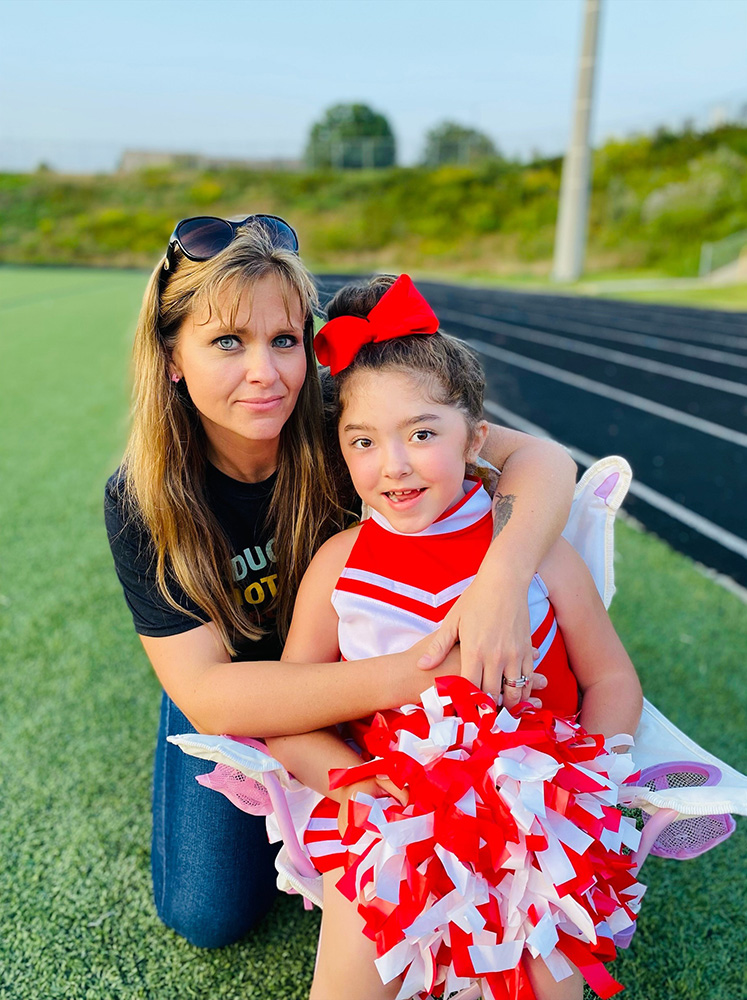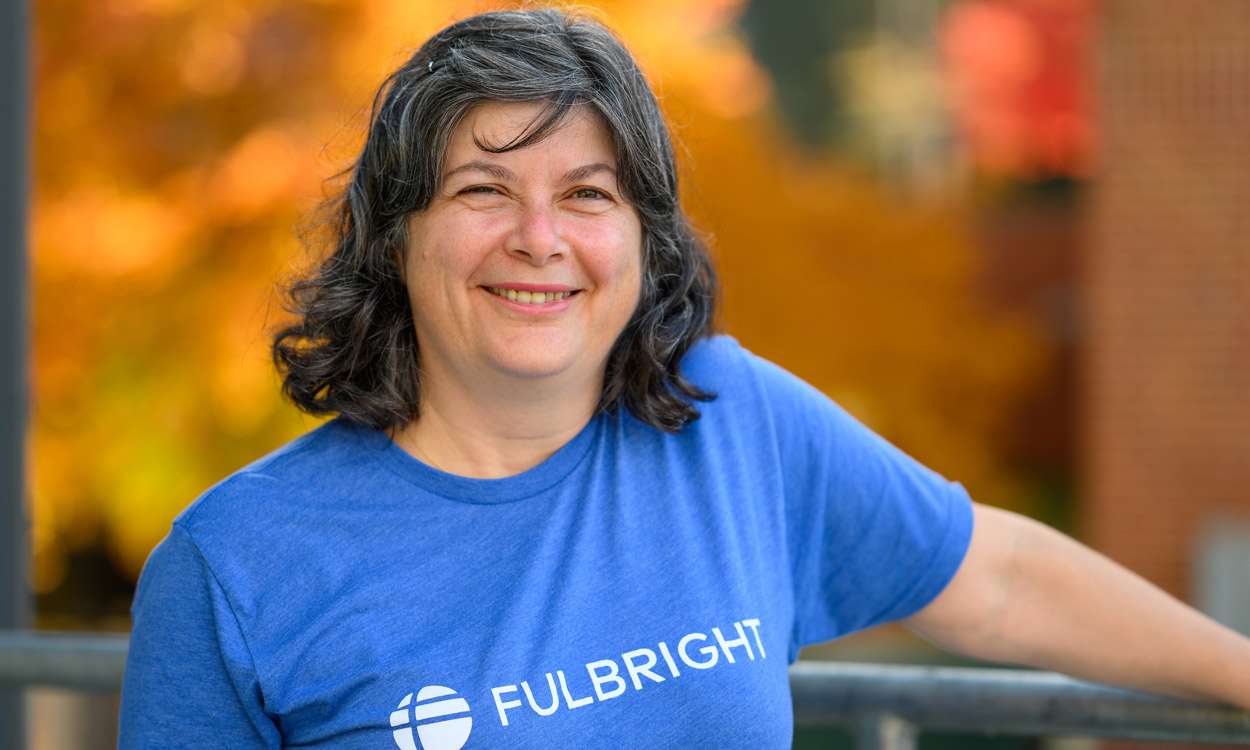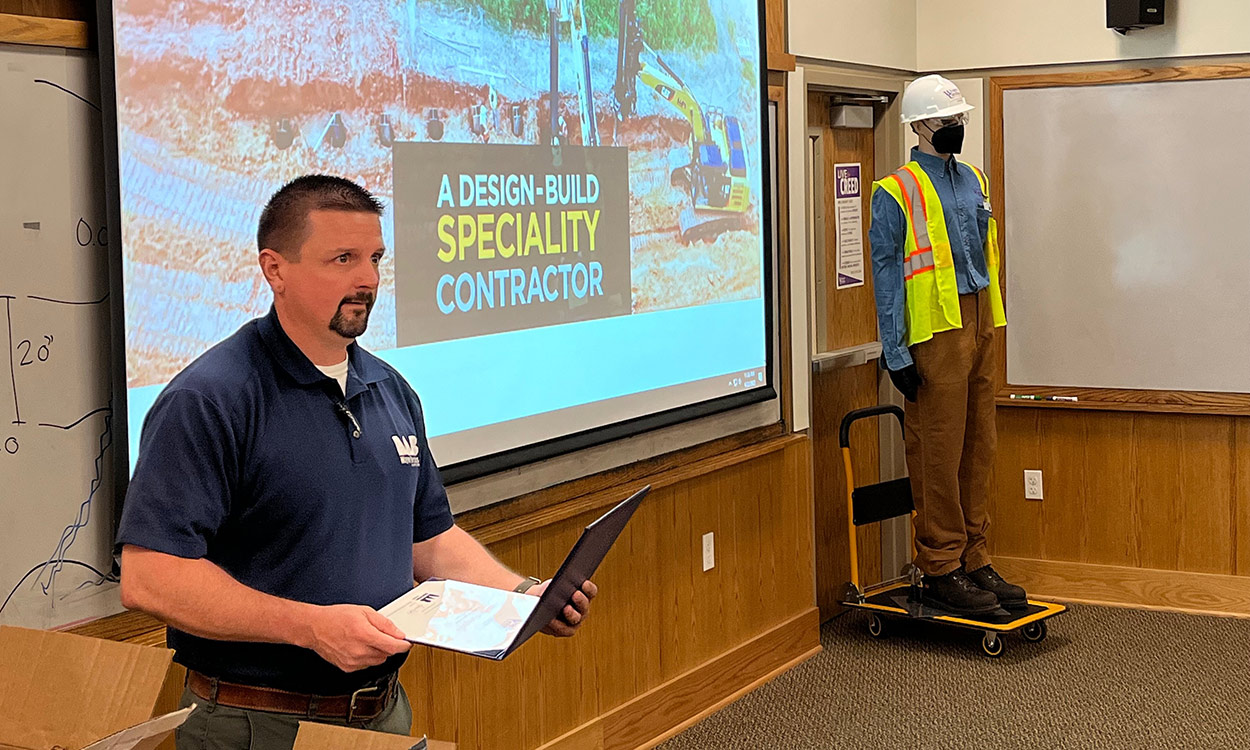Lori and Andy Anderson establish endowed scholarship for HHS students

Andy and Lori Anderson
Even before her first day on the job as Western Carolina University’s new dean of the College of Health and Human Sciences on July 1, 2020, Lori Anderson knew she and husband Andy would establish an endowed scholarship for students in one of her college’s academic programs.
After all, the Andersons have a tradition of contributing to scholarships at each stop along the way throughout her career. In fact, they trace the very roots of their relationship to a chance meeting when she was an associate dean at Augusta University giving a tour of the School of Nursing facilities to a new donor named Andy Anderson.
A member of that university’s School of Nursing advancement committee, he had established an endowed scholarship in memory of his first wife, Vera, who died in 2007 from amyotrophic lateral sclerosis (also known as ALS or Lou Gehrig’s disease). During that tour, he shared with Lori how he and Vera had met while serving in the Army and described her service in the Army Nurse Corps, including treating President Dwight Eisenhower and other VIPs at Walter Reed Army Medical Center.
Moved by his story, including how he cared for his wife during her battle with ALS, Lori Anderson became a regular contributor to the Col. Vera Nolfe Anderson Army Nursing Scholarship at Augusta. Lori and Andy began dating about a year after that initial meeting and got married in 2011.
Fast-forward nine years later, and he has returned the favor, helping her set up a new scholarship fund at WCU in honor of her late father.
“Through the establishment of that first scholarship, we became acutely aware of the financial needs that students have,” she said. “Providing financial contributions for scholarships has been an easy thing to do no matter where I land in my career.”
Following an 18-year stint at Augusta University, she became dean of nursing at Tusculum University in 2018. There, the Andersons provided annual scholarships to support nursing students.
“When I came to WCU, we knew immediately that we were going to establish a scholarship and just needed to figure out the focus,” she said. “Because I was the dean of a college with multiple professions and did not want to totally favor nursing, it became clear to me very quickly what I wanted to do – we established a scholarship with a focus in neuroscience.”
The Anderson Family Scholarship in Neuroscience, created through gifts and pledges totaling $28,000, is designed to honor her father, Stan Schumacher, who died in 2004 from a genetic neurological condition. During his illness, Schumacher received clinical care from multiple disciplines represented in WCU’s College of Health and Human Science.
“In order to be inclusive of many of the disciplines in the college, it seemed appropriate to create the scholarship in neuroscience. Dad and the family had interfaced with nurses, physical therapists, social workers, nutritionists, emergency medical care, recreational therapy, speech pathologists, so it was a great fit,” Lori Anderson said. Preference for the $1,000 annual award is given to students from rural Appalachian Mountain counties of Western North Carolina, eastern Tennessee and northeastern Georgia.
“We started the scholarship immediately upon my arrival, knowing the impact that it would make in student lives,” she said. “This was a no brainer for us. We did not wait, as we knew there are always student needs. We immediately felt that WCU was our new home, that we were here to stay and to help make a difference.”
The inaugural recipient of the Anderson Family Scholarship is Asheville resident Terrah Borsh, a graduate student in WCU’s family nurse practitioner program. In applying for the scholarship, Borsh wrote about her daughter, Camila, who has a chronic neuromuscular disease called congenital muscular dystrophy.

Terrah Borsh and daughter Camila
“It means a lot to me that they read my paper and chose me to invest in because I wrote about the person who changed my entire life. My daughter is the reason I am a nurse and the reason I further my career,” said Borsh, who also has three sons.
Doctors initially told Borsh that her daughter, born with an incurable neuromuscular disorder, would not make it to her second birthday and, if she did, would be dependent upon a ventilator for the rest of her life.
“My daughter is seven years old now and has never been ventilator-dependent, but uses a BiPap (bilevel positive airway pressure) machine at nighttime. She is wheelchair-dependent, and has endured many surgeries and procedures. She has been very sick throughout her life, but she is my reason for being in the medical field,” she said. “When things get hard, she shows me that where there is a will, there is a way. She works hard every day to live and enjoy life, so why can't a common adult do the same thing?”
Borsh also earned a bachelor’s degree in nursing from WCU in 2019 and an associate degree in nursing from Asheville-Buncombe Technical Community College in 2018. While working toward her master’s degree, she is employed in the emergency department at Mission Hospital in Asheville, focusing on patients with traumatic injuries or critical illnesses.
Because of work commitments, Borsh could not attend an October celebration of philanthropy at WCU connecting donors who have created endowed and annual scholarships to students who are attending WCU thanks to those contributions.
“My schedule is not easily manipulated, unfortunately,” she said. “Our life is complicated, and attempting to work 50-plus hours a week and go to school and care for children can be very difficult. However, it is people like Lori and Andy Anderson who choose to make that path a little easier and I thank them for this scholarship. We are a complicated yet beautiful team (family) that is very appreciative for the honor of this award.”
After earning her master's degree, Borsh plans to take her family nursing practitioner board examinations toward a goal of practicing in Western North Carolina. “I have specific interests in emergency medicine, rural care and researching my daughter’s neuromuscular disease. I would like to go further in my career after I have some experience under my belt to possibly work alongside researchers to find a cure for Camila’s muscular dystrophy. I am hoping I can merge these concepts together and help our community thrive and aid in finding a cure for my sweet daughter,” she said.
Helping students like Borsh pursue their passions is what makes supporting scholarships so meaningful, Lori Anderson said. “I think it is important for faculty and staff to give of their treasure. Donors make dreams come true and help students meet goals and overcome barriers that they may be experiencing. As a donor, it is a tremendous privilege to give and know that the gift is worthwhile,” she said. “Being in academics, we are here for the student and we hear many, many stories from our students. They share the good and the bad that they are experiencing.”
For Lori Anderson, being a donor also means that she has come full circle. “I was a recipient of scholarships when I attended my undergraduate program, and I appreciated any assistance I could get. I was a first-generation college student needing to put myself through college, as my family did not have the means to assist me in my educational pursuits. Scholarships made a difference in my life and I know the difference they make in someone else’s life. So when I was financially able, I gave back to express my gratitude,” she said.
Spouse Andy Anderson, who retired from a career in the furniture industry after his U.S. Army service, has similar sentiments. The fund he established at Augusta University in honor of his first wife has raised more than $100,000 from friends, family and coworkers, with contributions from 30 different states, and has awarded more than $50,000 in scholarships since 2008.
“Scholarships are very important to us because we want to help students avoid student loan debt, when possible,” he said. “It means a lot for us to interact with our scholarship recipients and learn about their history and future endeavors. We also like to keep in touch with them after graduation, when possible.”

